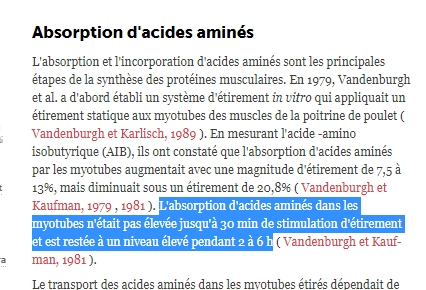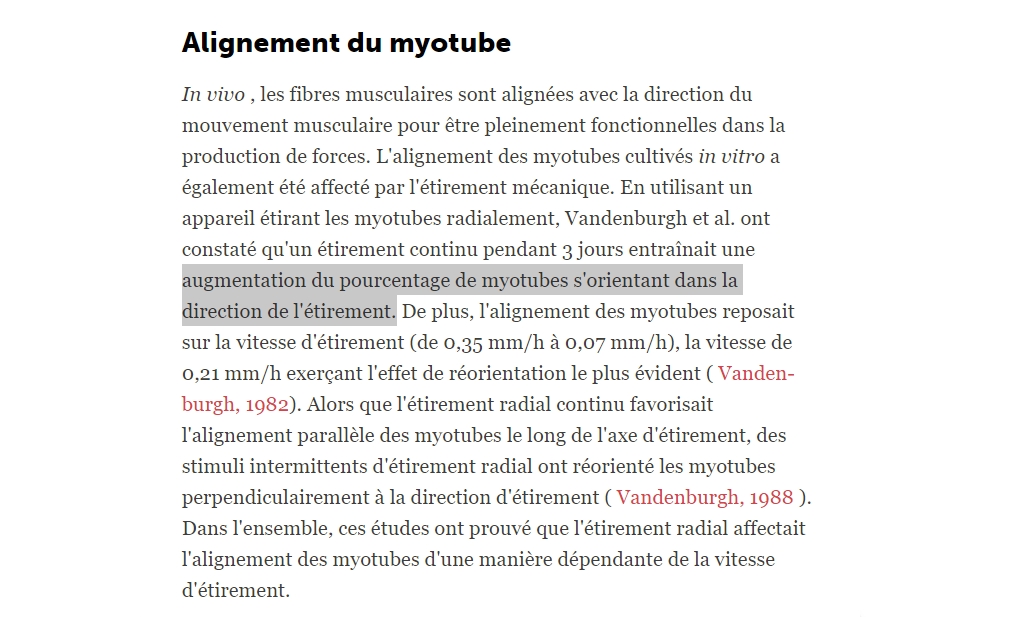Molecular and Biomechanical Adaptations to Mechanical Stretch in Cultured Myotubes
Dapeng Ren Front. Physiol., 02 August 2021
Myotubes are mature muscle cells that form the basic structural element of skeletal muscle. When stretching skeletal muscles, myotubes are subjected to passive tension as well. This lead to alterations in myotube cytophysiology, which could be related with muscular biomechanics. During the past decades, much progresses have been made in exploring biomechanical properties of myotubes in vitro. In this review, we integrated the studies focusing on cultured myotubes being mechanically stretched, and classified these studies into several categories: amino acid and glucose uptake, protein turnover, myotube hypertrophy and atrophy, maturation, alignment, secretion of cytokines, cytoskeleton adaption, myotube damage, ion channel activation, and oxidative stress in myotubes. These biomechanical adaptions do not occur independently, but interconnect with each other as part of the systematic mechanoresponse of myotubes. The purpose of this review is to broaden our comprehensions of stretch-induced muscular alterations in cellular and molecular scales, and to point out future challenges and directions in investigating myotube biomechanical manifestations.















